April 2015
My grandparents were farmers in the middle-of-nowhwere South Dakota, where the air was pure, and the dirt roads were long and winding. Their rolling fields attracted a beekeeper, who paid for the use of their land with honey- not a bad form of commerce! When I was young, a trip to my grandparents’ house meant spoonfuls of the caramel colored, double-spun sweetness. When it came time to depart, Grandma would send us with a substantial supply of honey, which never made a noticeable dent in their stock. When I visited as an adult and learned Grandma & Grandpa were feeding their excess honey to their calves, I loaded a box of honey to take home- pounds! gallons! It was my treasured resource, and I rationed it stingily to my roommates. So deep is my love for honey, it may have subconsciously led me to true love.
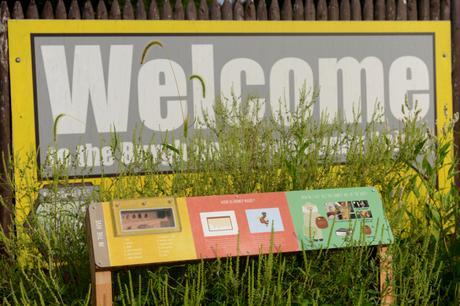
Entrance to Burgh Bees’ Apiary
Around this corner of the blogosphere, he is known as The Urban Farmer, but luckily for me, my agriculture-loving beau is also a beekeeper! As I type this, the Urban Farmer is bound for a farm to pick up his new bees. He’ll soon be mixing sugar and water to make their food and introduce them to their new home on his burgeoning urban farm! Last summer, I had the opportunity to watch him tend to his brood at his former hive location, and hopefully next summer, I’ll be sharing recipes made with lots and lots of his honey. Observing bees at work was a rare opportunity, so this post is my invitation for you to experience the process vicariously and take advantage of the Urban Farmer’s bee expertise. Without further ado…
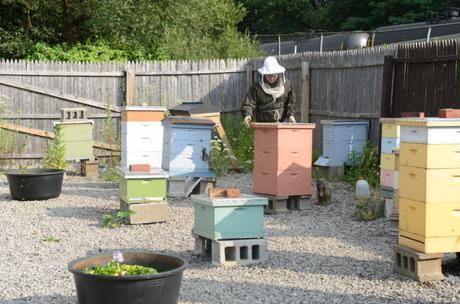
What drew you to beekeeping?
I lived in Hawaii for a few years, where it was really easy to live off the land. You could just pick fruit and eat healthily, but I also started to interact with people living off the land very intentionally. I became increasingly interested in growing my own food, urban farming and sustainability. I moved back to Pittsburgh about two years ago with the idea of starting an urban farm, and as I learned more and more, I saw bees as an integral component of a sustainable farm system.
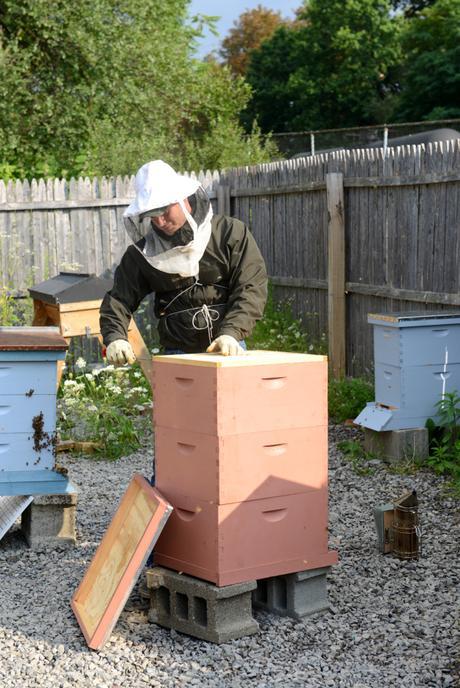
What made you decide to be a beekeeper?
I started to read more about the negative effects of GMO’s (Genetically Modified Organisms) and monocultures (growing a single crop, for a long time in vast areas, which prevents a diverse, year-round diet for bees and simultaneously depletes soil nutrients). The link between bee colony collapse [bees disappearing] and GMO’s seemed so obvious. Bees are dying, and people act as if it’s a big mystery, but if you look at the flaws of the industrial agricultural system, there’s an easy solution: support local honeybees. I chose to dive in completely and become a beekeeper.
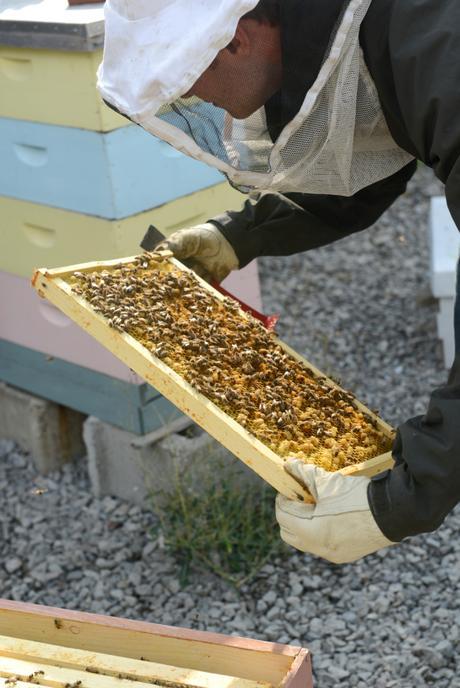
How does one become a beekeeper?
Pittsburgh is really fortunate to have the nonprofit Burgh Bees. I went through their program to learn the fundamentals, and then I kept bees in their apiary. Now I’m on the board, and we organize beekeeping events and gatherings to really push the community aspect as well.
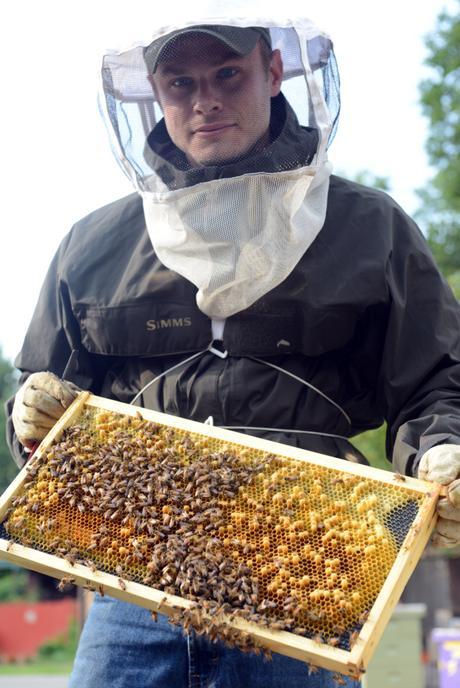
What’s the most interesting fact you learned about bees?
A bee’s work ethic is what really blows my mind! The first time I saw a baby bee chew its way out of its cell and go directly to work cleaning the hive, I knew I had a lot to learn from these creatures.
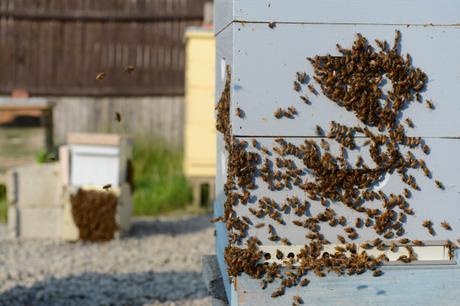
What do you do with your honey?
Nothing yet. I had some hiccups last summer and mysteriously lost a Queen which set me back a few weeks. It’s also typical in a hive’s first winter to leave the honey for the bees, since honey is their only food throughout the winter months.
What’s next for you?
I’m starting an urban farm of my own! Acquiring lots in the city [of Pittsburgh] proved to be a bureaucratic nightmare, but I’m finally in the process of planting. As for my beekeeping goals, I’m starting a new hive on my farm.
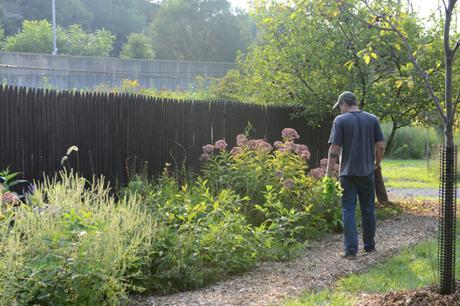
What can we do to support urban beekeeping?
First and foremost, buy lots of local honey! In addition to supporting beekeeping and bees, local honey boasts tremendous flavor, so it’s an easy choice. Make sure it comes from a frack-free region though. Fracking poses many environmental concerns to our food, air and water. This is an unfortunate consequence of the industrial presence in our region.
When it comes to other food purchases, pay careful attention to your labels. Stay clear of pesticides and GMOs, which harm the bees. Buy organic foods, but even better than the organic label is a conversation with your local farmer about his or her growing practices.
Plant a bee-friendly garden. Zinnias, buttercups, peppers, and thyme are among many plants that help bees thrive.
Support farms that incorporate beekeeping as part of a sustainable system. This might require some investigating, but it’s worthwhile. Once you find out the best source for your region, tell other foodies and garden aficionados.
Still want to learn more? If you’re a Pittsburgh resident, you can attend an open apiary session with Burgh Bees. You can also leave a question in the comments, and I’ll ask my expert. Soon enough, you’ll also be able to visit The Urban Farmer at his urban farm!

Happy Honeying!
-Quelcy

